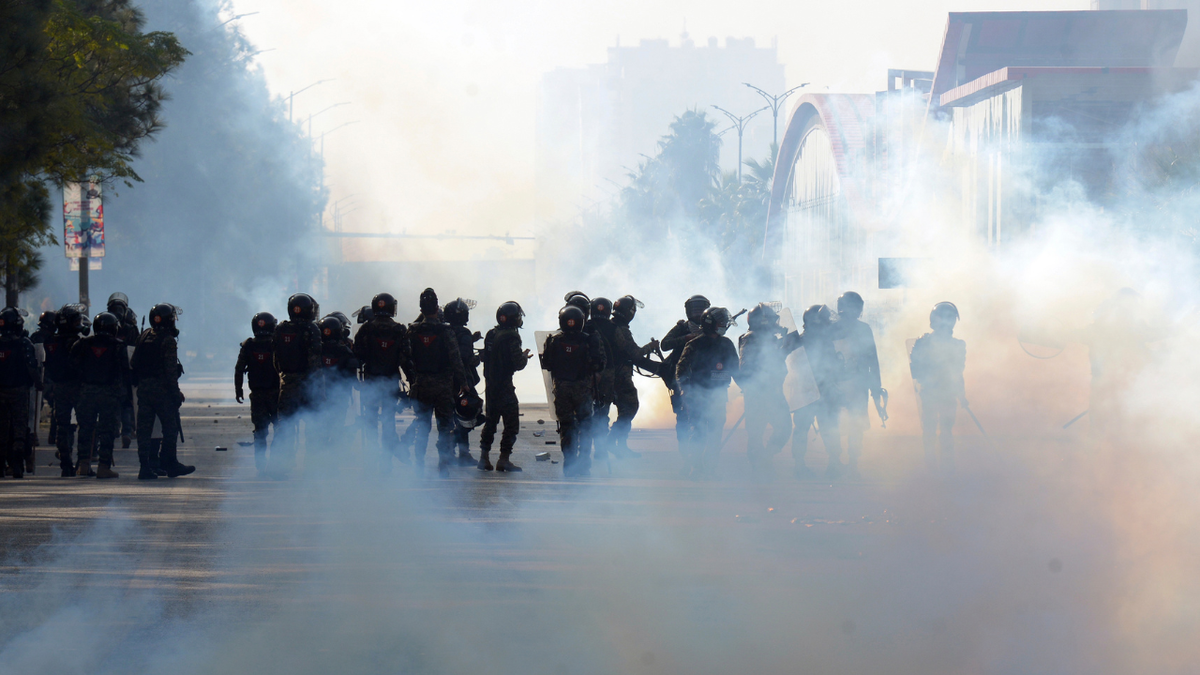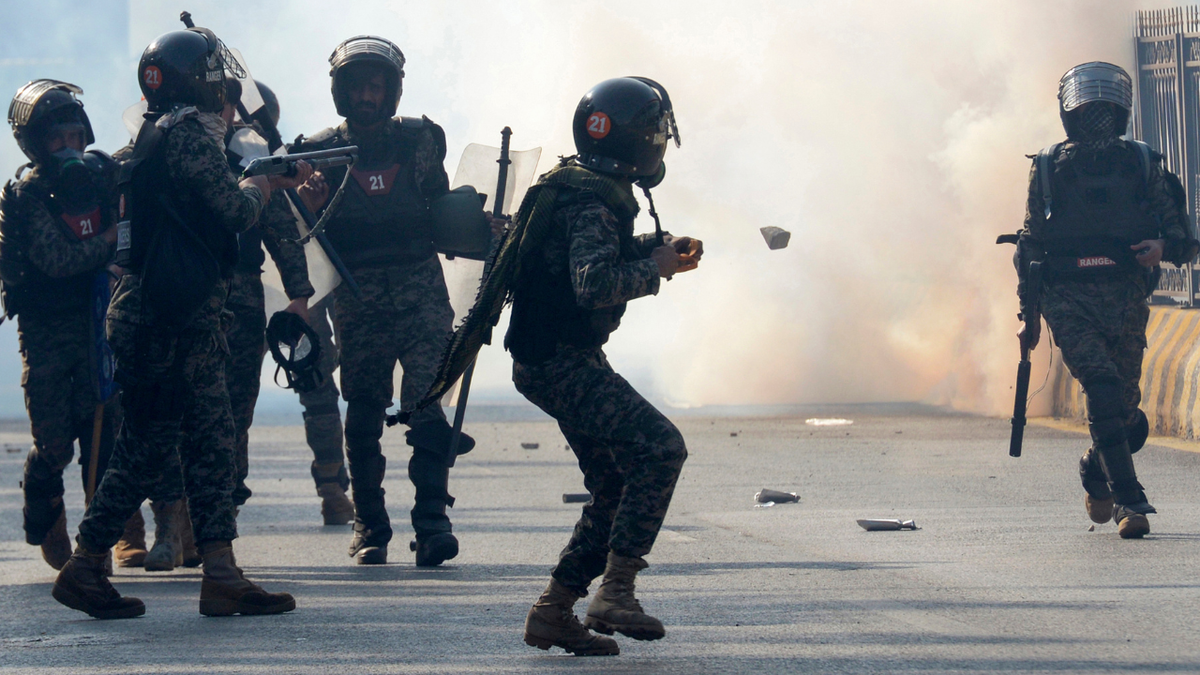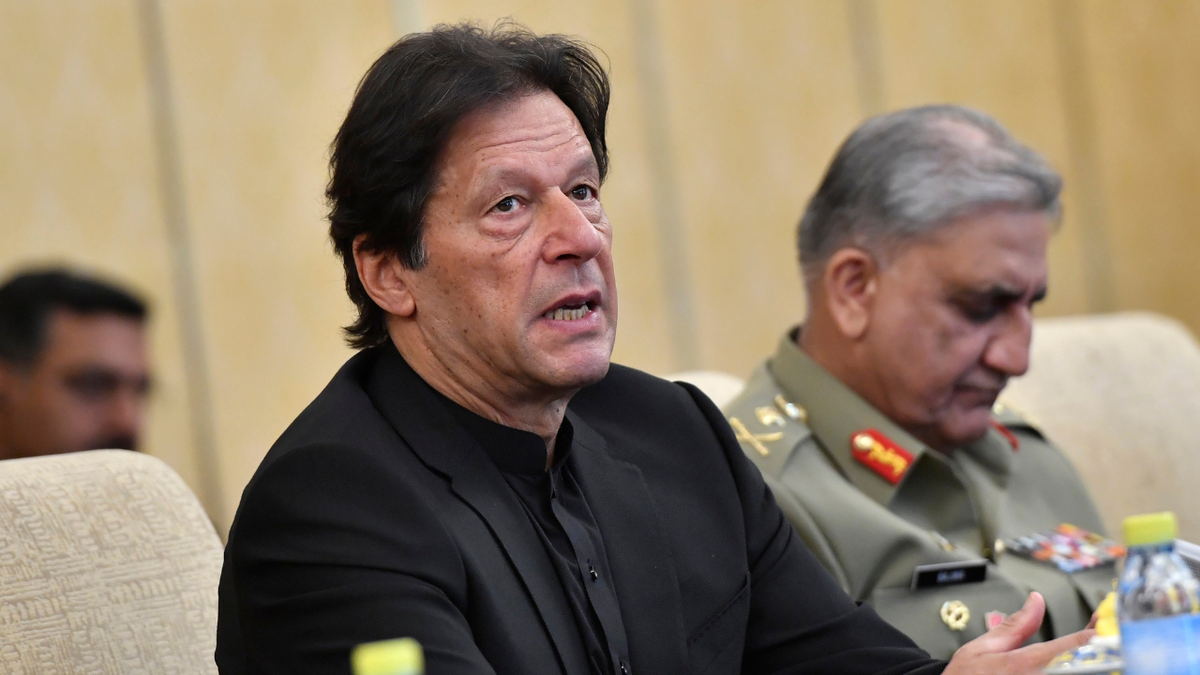Tensions flared in Islamabad on Tuesday as supporters of imprisoned former Prime Minister Imran Khan clashed with security forces, resulting in six fatalities. The protests, which began on Sunday, intensified as demonstrators breached barricades and confronted authorities, demanding Khan's release.
Thousands of security personnel were deployed to the capital's Red Zone, home to government buildings, in an attempt to control the escalating situation. Paramilitary forces and police used warning shots and tear gas to disperse the crowds. The presence of visiting Belarusian President Alexander Lukashenko in the Red Zone further heightened security concerns.

Clashes between security forces and supporters of Imran Khan led to the use of tear gas in Islamabad, Pakistan, on November 26, 2024. (AP Photo/Irtisham Ahmed)
Despite the heavy security presence, Khan's wife, Bushra Bibi, who is leading the protests, proceeded towards the Red Zone in a guarded convoy. Interior Minister Mohsin Naqvi issued a stern warning, stating that security forces would resort to live fire if protesters used weapons against them.
Protesters voiced their determination to continue demonstrating until Khan's release. They expressed frustration over the economic, political, and social conditions in the country, attributing their hardships to the current government. One protester asserted that "the bullet will be responded with the bullet" if security forces used live fire again.

Tear gas was used to disperse supporters of Imran Khan during clashes in Islamabad, Pakistan, on November 26, 2024. (AP Photo/Irtisham Ahmed)
The reported fatalities include four security personnel and one civilian killed in a vehicle ramming incident overnight. Prime Minister Shehbaz Sharif condemned the attack, blaming an "anarchist group." A separate incident resulted in the death of a police officer. Numerous injuries were also reported, including journalists who were assaulted by demonstrators.
Pakistani media coverage shifted its focus from the protests to the heightened security measures and the impact on the city. By Tuesday afternoon, new waves of protesters reached the Red Zone. Most demonstrators displayed the flag of Khan's party, Pakistan Tehreek-e-Insaf.

Former Pakistani Prime Minister Imran Khan (Parker Song-Pool/Getty Images)
The government's attempts to contain the unrest included the arrest of over 4,000 Khan supporters, suspension of mobile and internet services, and roadblocks using shipping containers. Educational institutions remained closed. Information Minister Atta Tarar warned of a strong government response to the escalating violence. He accused Bushra Bibi of seeking "bloodshed" to achieve Khan's release.
Khan's party, which heavily relies on social media for communication, experienced disruptions in messaging platforms and access to the X platform. The government imposed a ban on rallies in the capital, leading to further restrictions on movement and communication.
Comments(0)
Top Comments